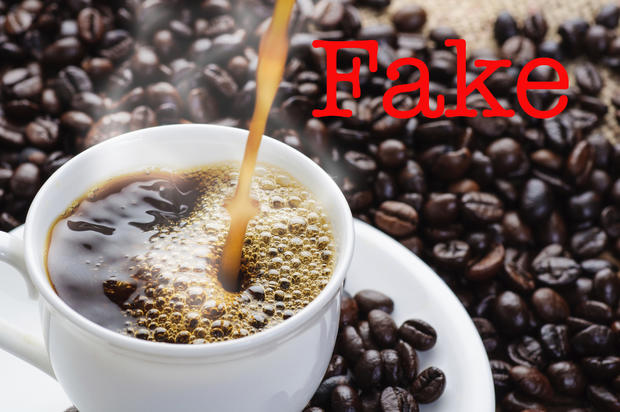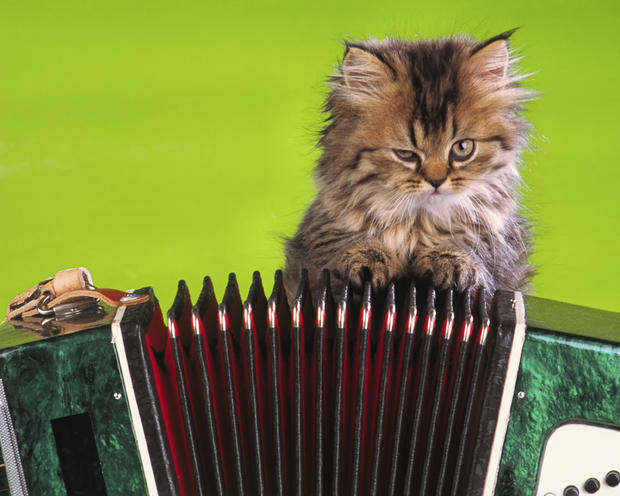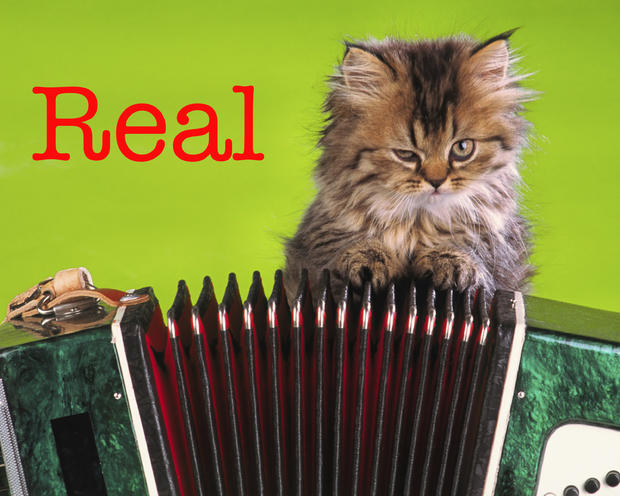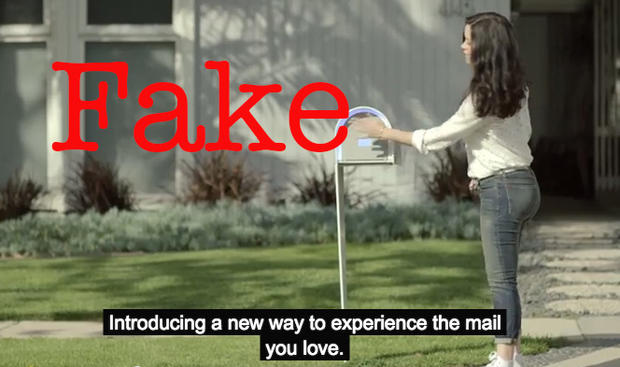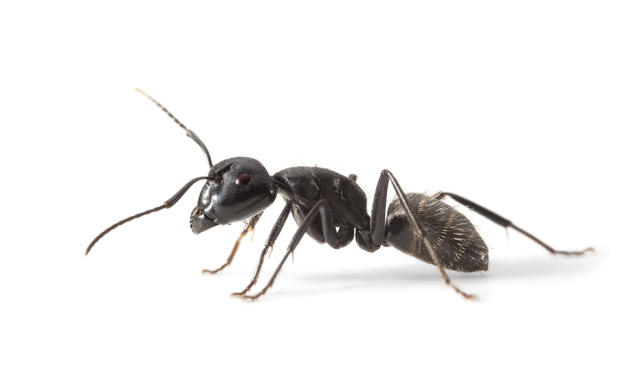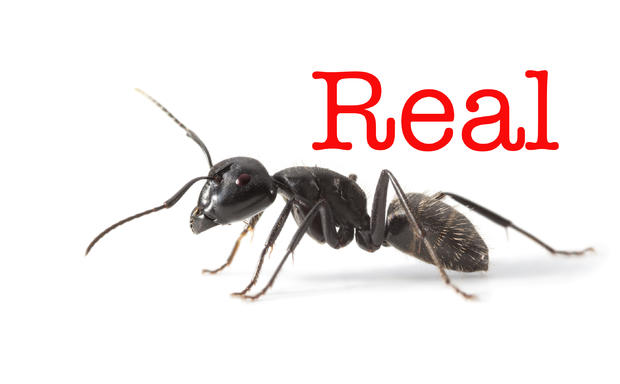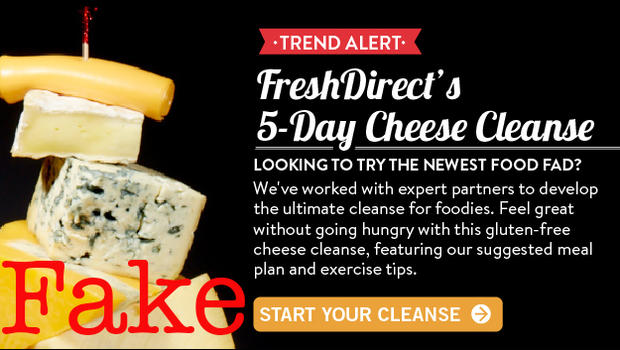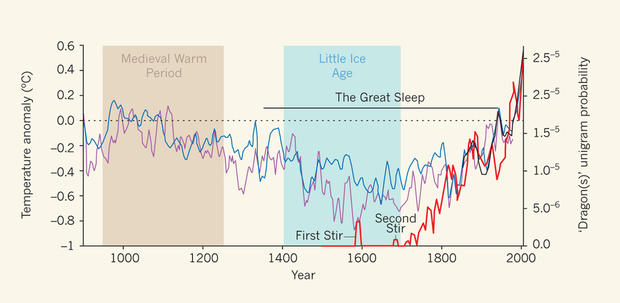April Fool's gag or real science? You be the judge
Too weird to be true? In science, health and technology, sometimes the facts can sound stranger than fiction -- and things get especially confusing on April Fool's Day. We've rounded up some of the best April Fool's pranks we've seen this year, as well as some real stories and studies that seem positively made up.
Can you tell the difference?
Click through to test your prank-dar.
Pet selfie sticks
Unleashed by Petco announced "Dog on a Stick" and "Cat on a Stick," "the revolutionary selfie stick for pets." They strap onto your animal's chest and are activated via barks and meows. They will sell for $49.99.
Real or fake? Find out.
Pet selfie sticks
Sorry. You'll have to keep snapping pix of your pooch all by yourself. At least until he makes like a monkey and takes his own selfie.
Hot-all-day coffee
Caribou Coffee's new Workday Roast is a coffee that can stay at optimum drinking temperature, 160 degrees, for eight hours.
The beans in Caribou's Workday Roast contain natural inherent compounds that when exposed to water, produce a slow exothermic reaction and allow the coffee to self-heat for eight hours. The Minneapolis-based coffee company sourced the coffee beans from the island of Pilosa Flor, off the coast of Papua New Guinea.
Nate Hrobak, Caribou Coffee Roastmaster, said, "Once the beans were harvested and brought back to our Roastery, we noticed the beans contained drastically different compounds but were shocked that the coffee stayed hot for that long."
The new Workday Roast is a full-bodied medium roast with notes of nutmeg and anise. It will be available April 1 in Caribou Coffee's 400 domestic stores.
Real or fake? Find out.
Hot-all-day coffee
Buzzkill. Might be time to invest in a good travel mug.
Cat music
A new study published in the Journal of Feline Medicine and Surgery found that just like humans, cats undergoing surgery benefit from hearing music. But not all music is equal. Cats, it seems, benefit most from classical music.
Another study concluded that cats prefer their own music to ours. The researchers hypothesized that cats would respond better to music that is in the frequency range of and has similar tempos to those used in natural communication by their species. They composed music that is "species-appropriate music for domestic cats" and saw that the animals were more interested in the "cat music" than human music. They also found that "younger and older cats were more responsive to cat music than middle-aged cats."
Real or fake? Find out.
Cat music
Cats are selective creatures, so it should come as no surprise that they'd be picky about their soundtracks, too.
For more information you can see the classical music study here, and check out the details on "cat music" at the journal Applied Animal Behaviour Science.
Smart snail mailbox
Google has already taken over your virtual inbox, now it's taking over your real one. Even though email has largely replaced letters and most people get e-bills and e-tickets and online catalogs, we're not going to get rid of old school paper mail anytime soon. So Google has come up with what it calls a "better, smarter mailbox." Smartbox includes automatic sorting, temperature control and notifications when mail arrives.
Real or fake? Find out.
Smart snail mailbox
No, not even Google can conquer junk mail. But it can put a game of Pac-Man on a map of your town.
Ants always turn left
Researchers have found that, like Zoolander, ants aren't ambi-turners.
PhD student Edmund Hunt and colleagues at the University of Bristol studied how ants explore new spaces and found they were significantly more likely to turn left than right upon entering.
"Their world is maze-like," said Hunt, "and consistently turning one way is a very good strategy to search and exit mazes."
Real or fake? Find out.
Ants always turn left
OK, the ants don't always turn left, but they show a strong leftward bias. The results of the study were published in the journal Biology Letters.
All-dairy diet
We've been hearing for years to avoid foods high in saturated fats like butter, whole milk and red meat because they're bad for your heart, but recent research has called that long-standing advice into question.
Naturally, there's a new food fad to follow: cheese cleanses. Even major companies are getting in on it. Fresh Direct now offers a curated five-day cheese plan that includes a cheese for each day and an exercise regimen.
Real or fake? Find out.
All-dairy diet
Just because it's not real doesn't mean we won't do it.
Scientific evidence of dragons
A new study published online Wednesday in Nature reviews evidence that dragons may not be figments of the imagination after all.
The authors wrote:
Long considered to be the stuff of legend, dragons cross cultures and continents. Until recently, however, scant attention had been paid to the fact that the commonality in cultural representations of such creatures indicates something more sinister. From depictions in Ancient Greek literature and Slavic myth, to the dragons of the East or allusions in Zoroastrian scripture, the descriptions resonate. What if these legends were rooted in truth? The differences in appearance -- some lack wings, some have multiple heads and some seem not to breathe fire -- once thought to reflect local traditions, can also readily be explained by speciation.
Among the most compelling findings was that the rising incidence of dragons in fictional literature over time correlates with rising temperatures.
Real or fake? Find out.
Scientific evidence of dragons
Props to Nature for putting together such an elaborate prank, but, alas, dragons are still fantasy.
Fortunately, there's no shortage of real science about real monsters, like the 9-foot butcher crocodile, a razor-toothed salamander the size of a car, a rare shark known as a living fossil, and a prehistoric fanged sea dragon (perhaps the closest we're going to get).



